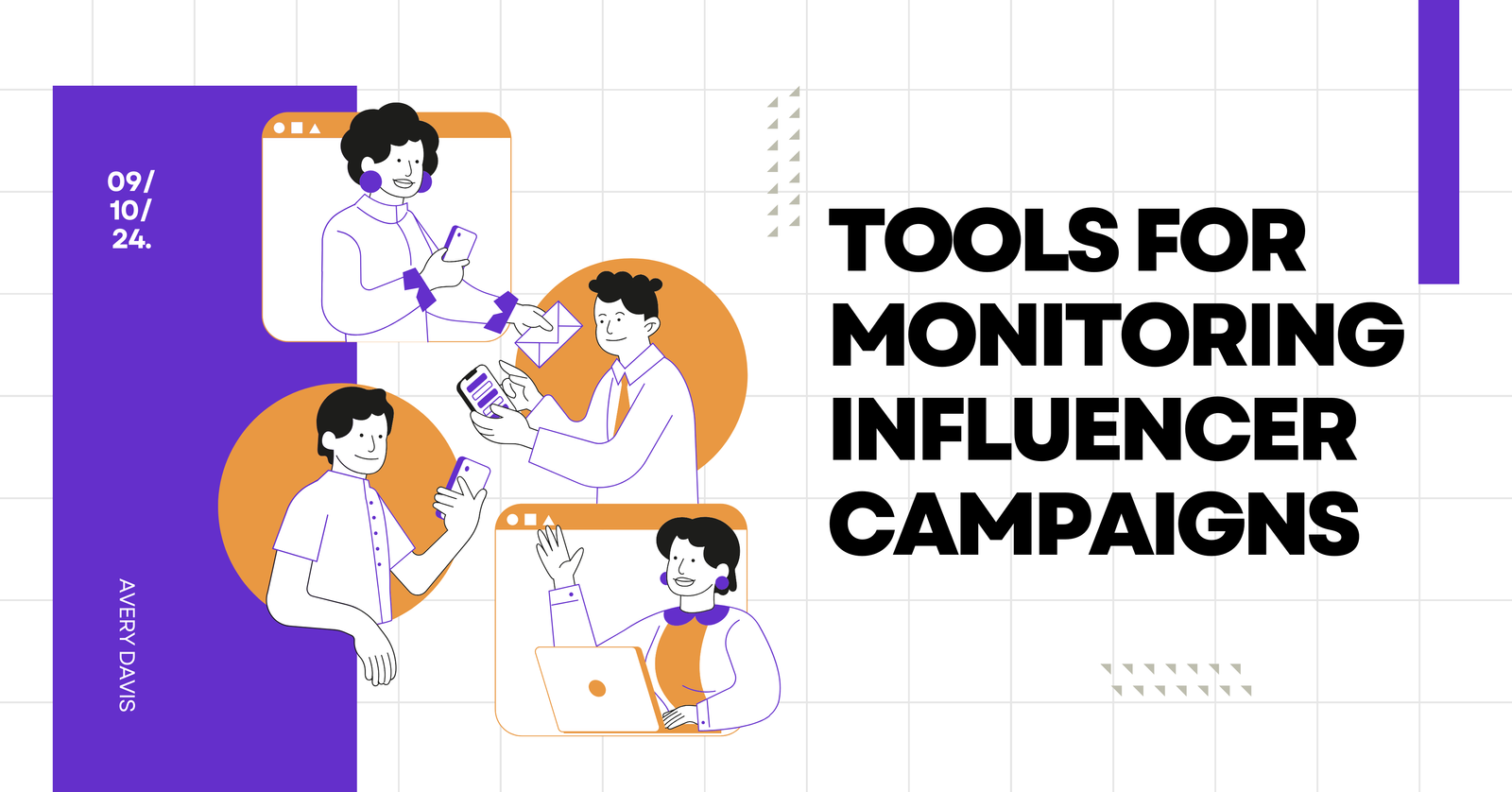
Are you a small company trying to gain noticed in your field without going over budget? The answer you’ve been looking for may be found in influencer marketing. Everything you need to know to take advantage of influencers’ power and increase brand awareness, engagement, and sales will be covered in this guide.
Table of Contents
- 1 Table of Contents
- 1.1 Introduction to Influencer Marketing
- 1.2 What is Influencer Marketing?
- 1.3 Why is Influencer Marketing Important for Small Businesses?
- 1.4 Types of Influencers
- 1.5 Mega-Influencers
- 1.6 Macro-Influencers
- 1.7 Micro-Influencers
- 1.8 Nano-Influencers
- 1.9 Benefits of Influencer Marketing for Small Businesses
- 1.10 Cost-Effective Marketing Strategy
- 1.11 Increased Brand Awareness
- 1.12 Setting Up Your Influencer Marketing Strategy
- 1.13 Defining Clear Goals
- 1.14 Identifying Your Target Audience
- 1.15 Choosing the Right Influencers
- 1.16 How to Find the Right Influencers
- 1.17 Research Tools for Influencer Discovery
- 1.18 Analyzing Influencers’ Engagement and Followers
- 1.19 Approaching Influencers for Collaboration
- 1.20 Crafting a Compelling Outreach Message
- 1.21 Offering Value in Collaborations
- 1.22 Types of Influencer Collaborations
- 1.23 Sponsored Posts
- 1.24 Product Reviews
- 1.25 Giveaways and Contests
- 1.26 Affiliate Marketing with Influencers
- 1.27 Measuring the Success of Your Campaign
- 1.28 Key Performance Indicators (KPIs) to Track
- 1.29 Tools for Monitoring Influencer Campaigns
- 1.30 Common Mistakes in Influencer Marketing
- 1.31 Focusing Only on Follower Count
- 1.32 Overlooking Long-Term Relationships
- 1.33 Conclusion
- 1.34 Frequently Asked Questions
Table of Contents
Introduction to Influencer Marketing
Influencer marketing has quickly emerged as one of the best strategies for small businesses looking to expand their clientele, foster trust, and boost revenue. However, what is it and why does it have such power?
What is Influencer Marketing?
Influencers with a devoted social media following are partners in influencer marketing. The visibility and legitimacy of your business can be increased by these people, who are referred to as influencers, promoting your goods or services to their audience.
Why is Influencer Marketing Important for Small Businesses?
Influencer marketing is revolutionary for small companies. It provides an affordable alternative to the high advertising expenses of traditional media for reaching potential clients, increasing brand recognition, and generating conversation about your goods. Influencers also contribute a degree of genuineness that appeals to their audience, which can aid small businesses in gaining the confidence and patronage of their clients.
Types of Influencers
Knowing the various kinds of influencers and how they might affect your company is crucial before launching into influencer marketing.
Mega-Influencers
The highest caliber influencers are known as mega-influencers, and they frequently have millions of followers. Consider well-known public personalities and celebrities. Despite their wide reach, their expensive costs and occasionally inability to target certain niches may make them an unsuitable option for small enterprises.
Macro-Influencers
Usually, macro-influencers have 100,000–1,000,000 followers. They provide a more cost-effective alternative to mega-influencers without sacrificing their substantial reach. For small firms trying to rapidly expand their brand, they can be excellent.
Micro-Influencers
The following size of micro-influencers ranges from 10,000 to 100,000. These influencers frequently have highly engaged followers and are subject matter experts in a certain niche. Micro-influencers are a great choice for small businesses since they offer both targeted reach and affordability.
Nano-Influencers
People with fewer than 10,000 followers are known as nano-influencers, but their little following is frequently very active. They are perfect for specialized markets or small firms where word-of-mouth and personal relationships are crucial.
Benefits of Influencer Marketing for Small Businesses
Influencer marketing has several advantages, particularly for small businesses with tight budgets.

Cost-Effective Marketing Strategy
Building Trust and Authenticity
Today’s consumers are wary of traditional advertisements, but they have faith in influencers who have developed genuine bonds with their following. Higher conversion rates for your small business can result from this trust.
Increased Brand Awareness
By collaborating with influencers, you can reach new audiences and increase the possibility of future engagement, even if your followers don’t immediately become customers.
Setting Up Your Influencer Marketing Strategy
Establishing a plan that supports your company’s objectives is crucial before you begin working with influencers.
Defining Clear Goals
With influencer marketing, what goals do you hope to accomplish? Setting specific objectives can make it easier to gauge success, whether it be in terms of better engagement, more sales, or brand awareness.
Identifying Your Target Audience
Reaching the correct audience is the main goal of influencer marketing. Determine who your target market is in order to select influencers who complement your brand and appeal to that group.
Choosing the Right Influencers
Not every influencer is suitable for your company. Seek out influencers with a devoted following in your niche and whose ideals coincide with your own.
How to Find the Right Influencers
It can be difficult to find the correct influencers, but the process can go more smoothly if you have the right resources and strategy.
Research Tools for Influencer Discovery
You may identify influencers in your field and examine their reach and engagement with the use of tools like BuzzSumo, Upfluence, and Influencity.
Analyzing Influencers’ Engagement and Followers
The number of followers isn’t everything. To make sure they have a vibrant, engaged audience, pay attention to engagement rates—the frequency with which their followers engage with their content.
Approaching Influencers for Collaboration
It’s time to get in touch with the influencers you wish to collaborate with.
Crafting a Compelling Outreach Message
Your outreach message should be brief, tailored, and value-oriented. Explain to the influencer why you would like to collaborate with them and how it would help them.
Offering Value in Collaborations
Offer something in exchange for influencers promoting your product rather than merely asking them to do so. This could be accomplished through long-term collaborations, special deals, or complimentary goods.
Types of Influencer Collaborations
You can collaborate with influencers in a number of ways to market your company.
Sponsored Posts
One of the most popular forms of influencer partnerships is sponsored content. In return for money or free merchandise, the influencer writes a post about your product.
Product Reviews
Influencer reviews can increase your product’s legitimacy and give prospective buyers the social proof they need to buy.
Giveaways and Contests
Because followers frequently need to interact with your account in order to participate, holding giveaways or contests with influencers can boost brand awareness and engagement.
Affiliate Marketing with Influencers
Influencers in affiliate marketing receive a commission for each sale they bring about via their special referral link. Influencers might be encouraged to actively market your items in this way.
Measuring the Success of Your Campaign
To make sure you’re getting a return on your investment, it’s critical to track the effectiveness of your influencer marketing campaigns.
Key Performance Indicators (KPIs) to Track
Monitor key performance indicators (KPIs) such as sales conversions, follower growth, and engagement rates to gauge how well your campaigns are working.
Tools for Monitoring Influencer Campaigns
Real-time campaign monitoring and outcome tracking can be facilitated by platforms such as Google Analytics, Hootsuite, and Sprout Social.

Common Mistakes in Influencer Marketing
To guarantee the success of your influencer marketing campaigns, steer clear of these typical blunders.
Focusing Only on Follower Count
A common error made by small businesses is to select influencers purely on the basis of follower count. But interaction is much more significant than the quantity of followers.
Overlooking Long-Term Relationships
Compared to one-time partnerships, developing long-term connections with influencers can produce more reliable results.
Also Reads: The Role of Consistency in a Successful Branding Strategy
The Importance of Storytelling in a Successful Branding Strategy
The Importance of Customer Experience in a Successful Branding Strategy
The Role of Emotional Connection in a Successful Branding Strategy
Top Influencer Marketing Strategies to Boost Your Business in 2024
Conclusion
Influencer marketing is a potent strategy for small businesses looking to expand their clientele and establish trust. Small businesses may prosper in the cutthroat market of today by knowing how to select the best influencers, organize successful campaigns, and assess results.
Frequently Asked Questions
Q: How do I choose the right influencer for my small business?
A: Focus on influencers who align with your brand values and target audience. Engagement rates are more important than follower count.
Q: Is influencer marketing expensive for small businesses?
A: Not necessarily. Micro and nano-influencers are affordable options that can provide great results for small businesses.
Q: How can I measure the success of my influencer marketing campaign?
A: Track KPIs such as engagement, follower growth, and sales conversions to evaluate success.
Q: What types of influencer collaborations are most effective?
A: Sponsored posts, product reviews, and giveaways are popular and effective types of collaborations.
Q: How can I avoid common influencer marketing mistakes?
A: Focus on engagement, not just followers, and consider building long-term relationships with influencers for better results.
Add a Comment